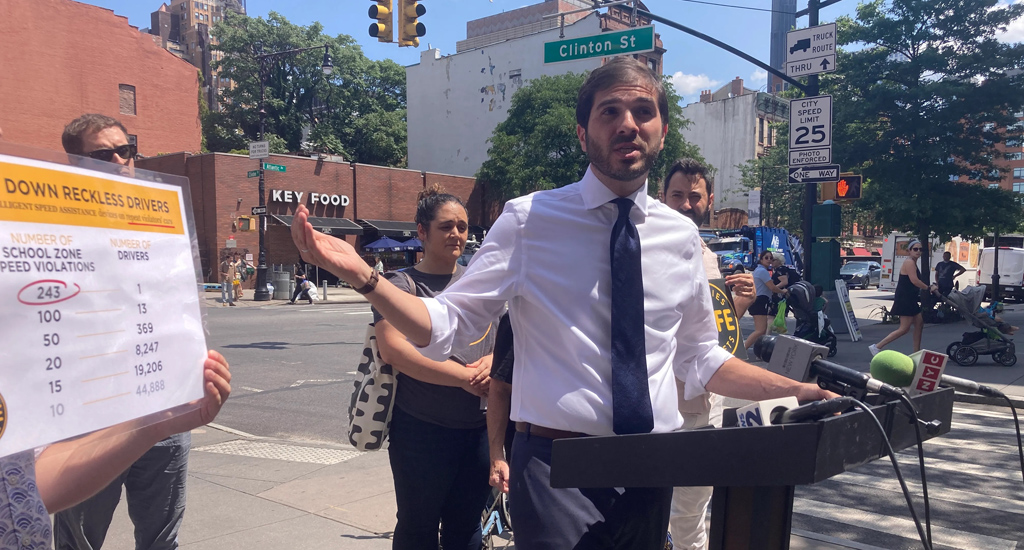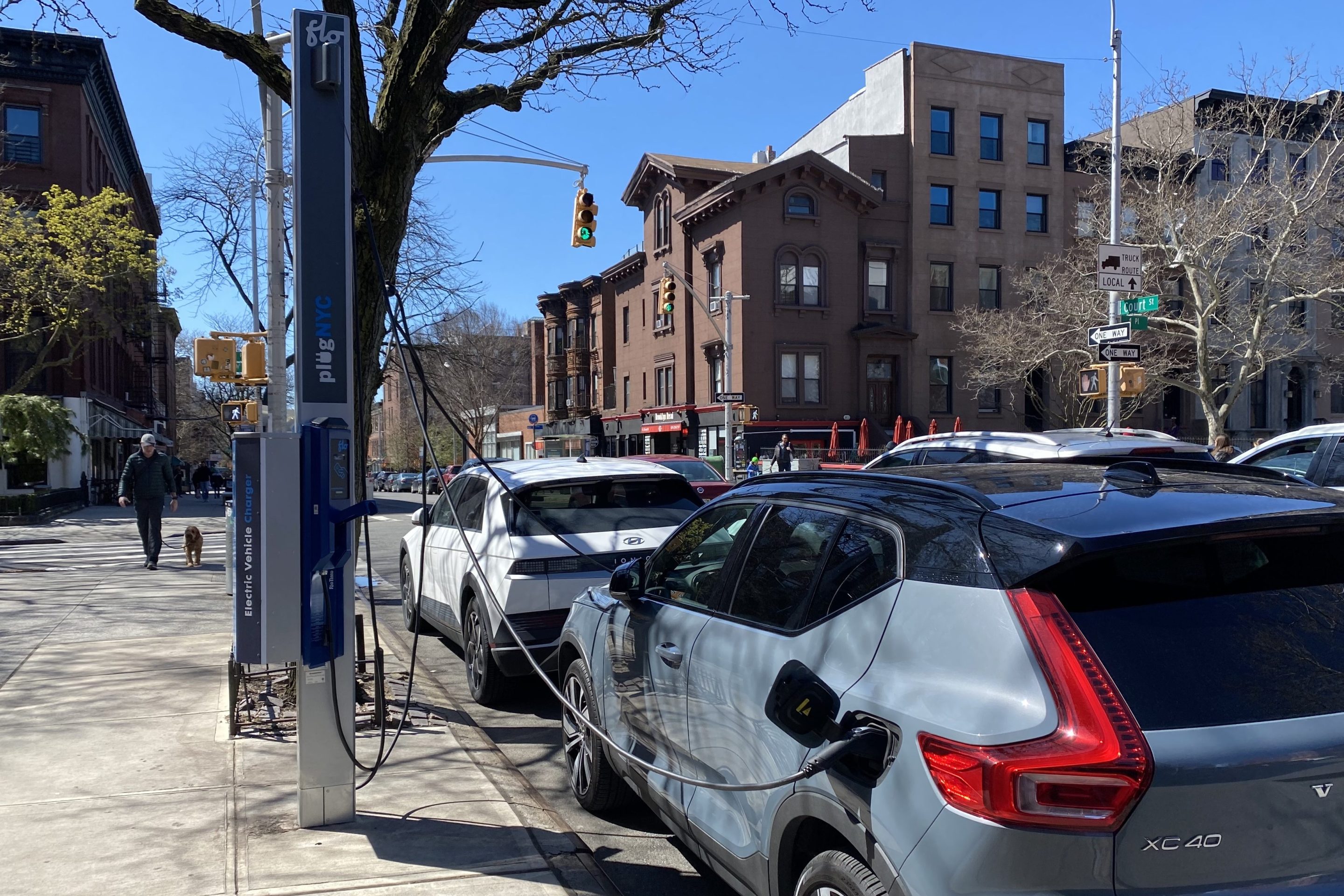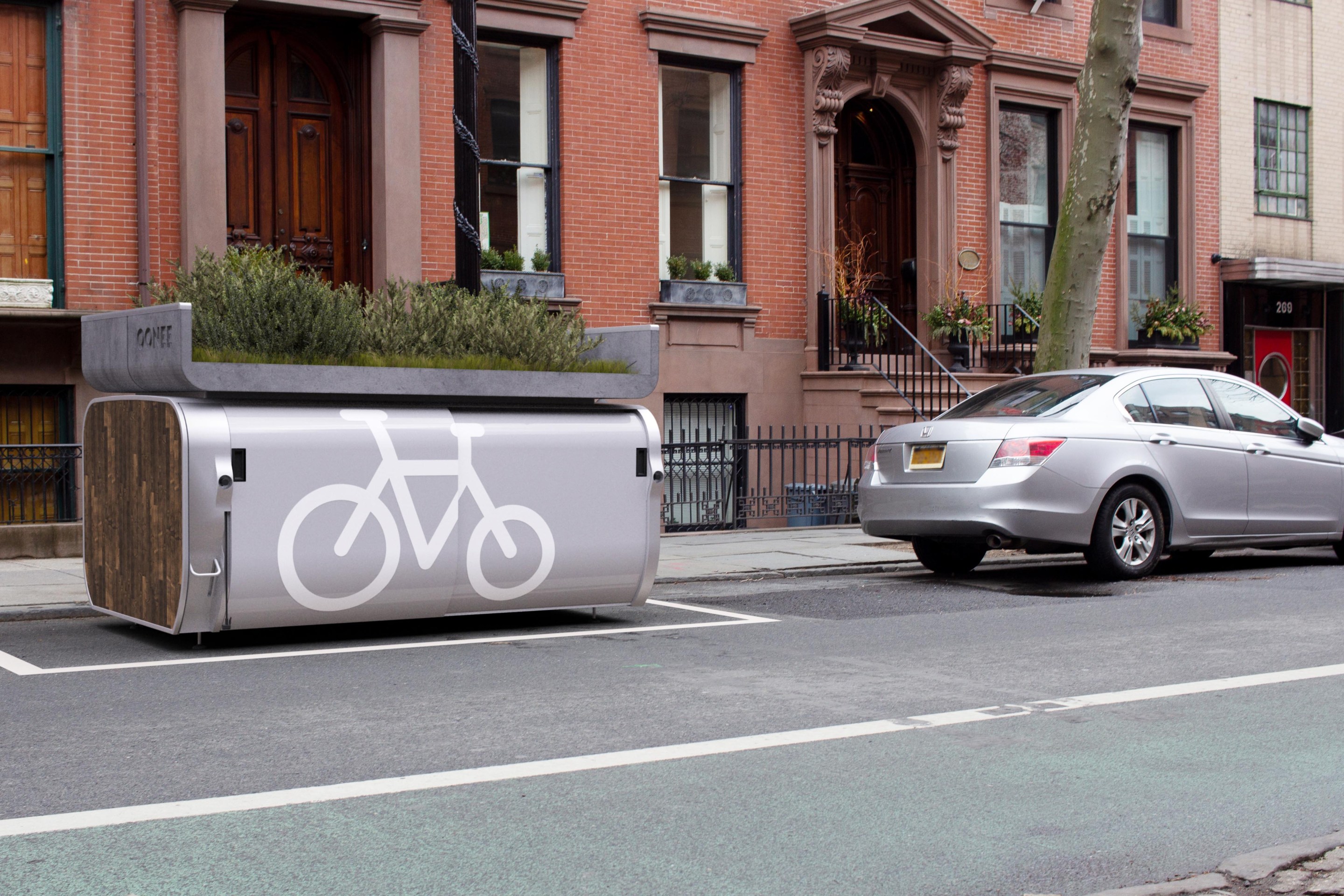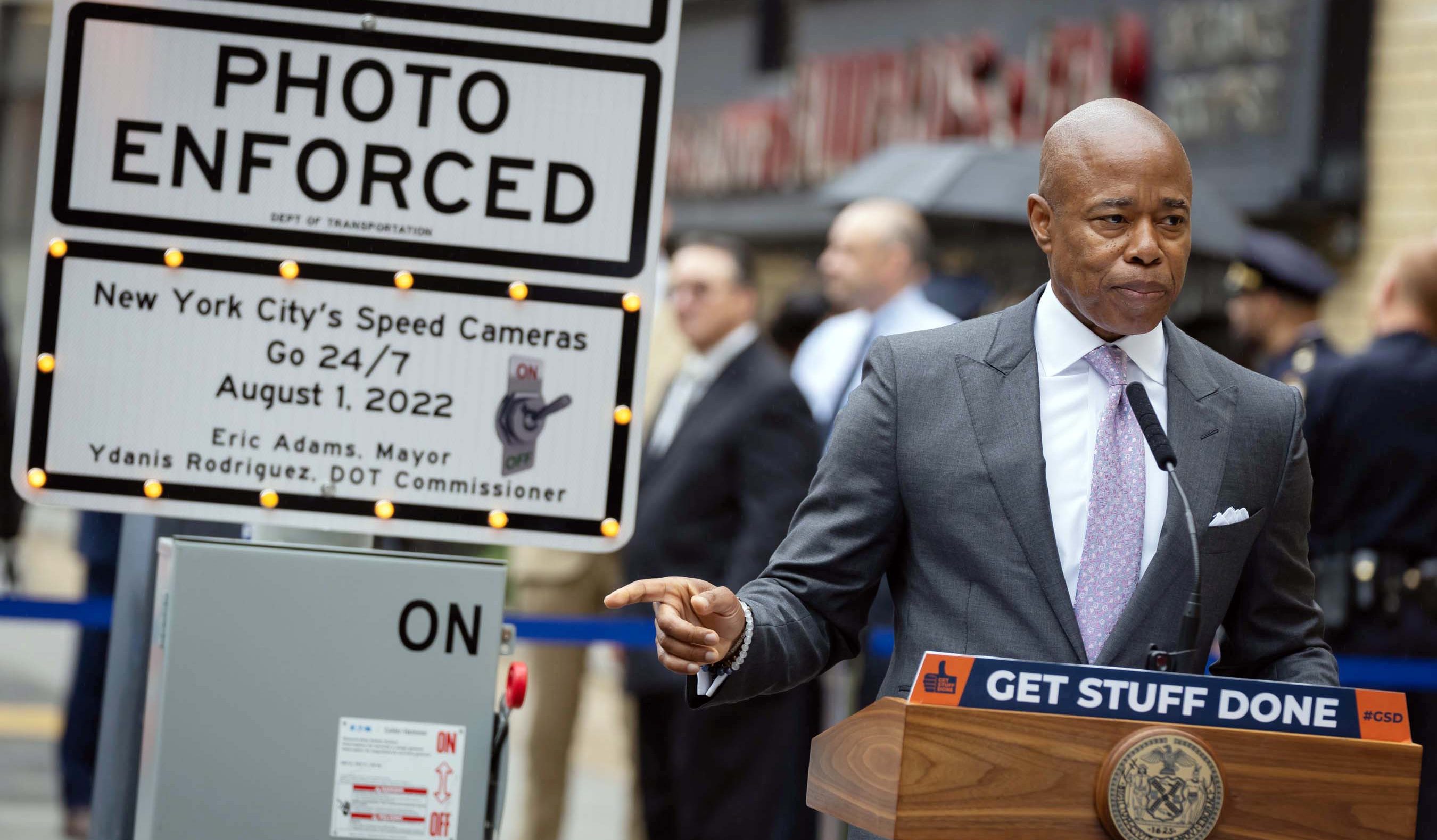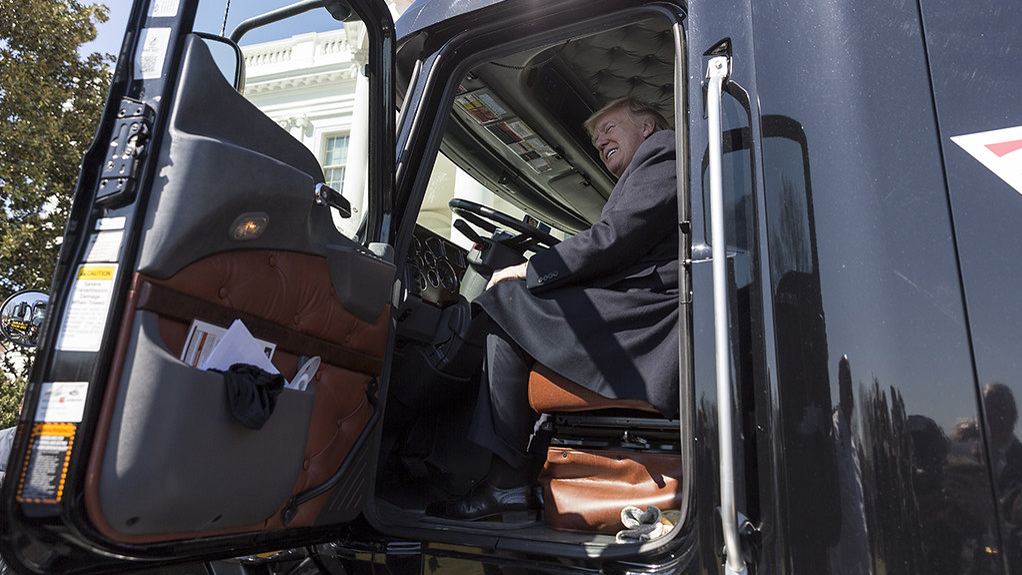Undamaged Nature, Unbroken Autonomy: Richard Grossman, a Bicycle and Me
1:58 PM EDT on May 25, 2012
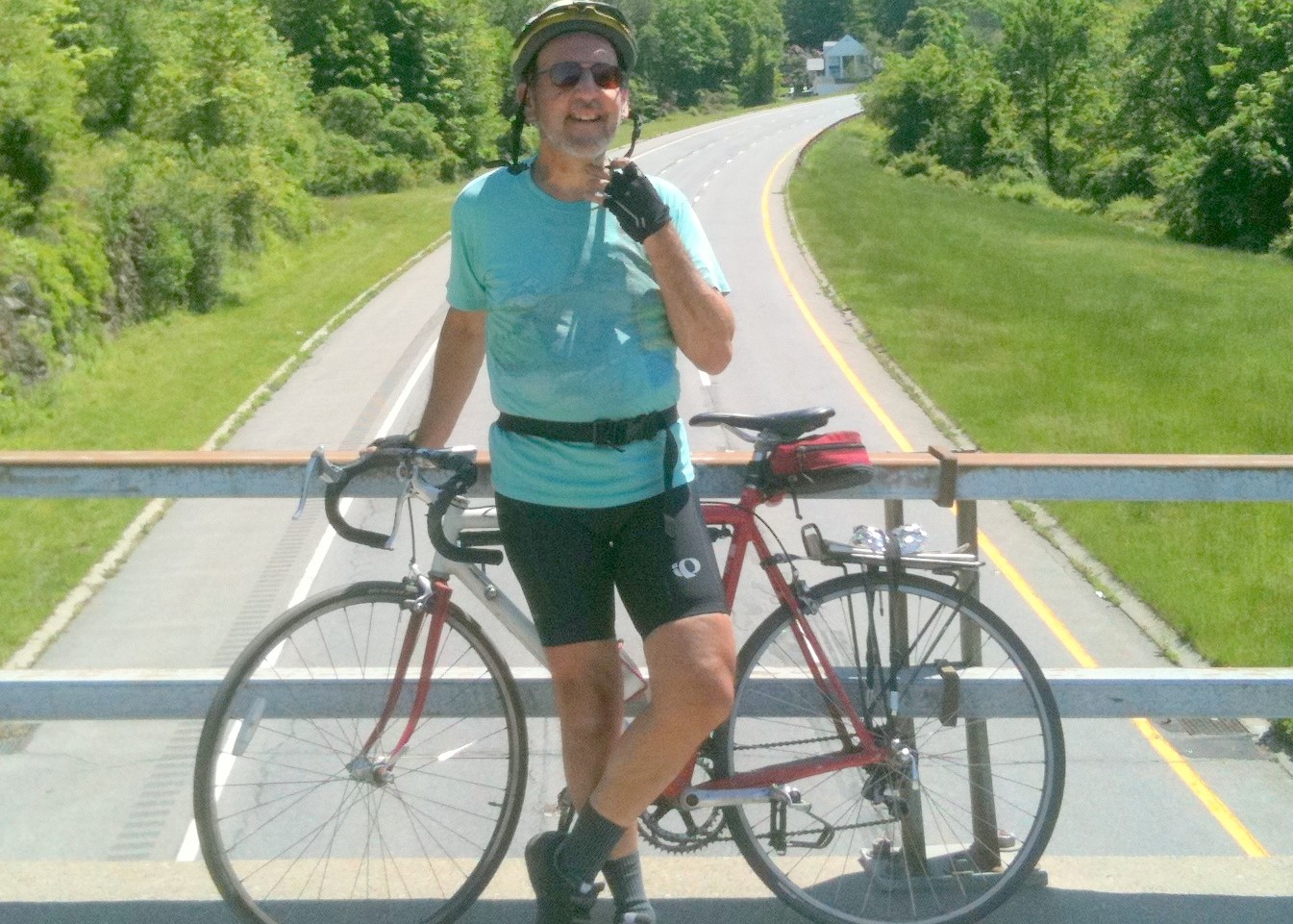
Author (above) with Taconic below. Photo: Udo Drescher
Good job winning River Road, Komanoff. Now go for the Taconic.
Richard Grossman, organizer, agitator and an intellectual godfather of the movement against corporate sovereignty, put those words on a postcard he sent me in 1989, after hearing that the Palisades Interstate Park Commission was rescinding its ancient rules restricting cycling on Henry Hudson Drive, a spectacular sinuous two-lane road carved from the Jersey Palisades. The advocacy campaign I had led as president of Transportation Alternatives had been a Grossman special, with tactics running the gamut from a bike-in (with the inevitable arrest) to legal briefs, coalition building and behind-the-scenes suasion. Richard’s praise was heartfelt, but he was kidding about the Taconic. Or was he?
The Taconic Parkway is a multi-lane highway that starts in New York’s northern suburbs, ribbons through its exurbs and ends in rolling farmland between Albany and the Berkshires. Making it a bike highway, or even one shared with cars, was sheer fantasy. But Richard, who died last November, was always goading fellow activists to raise the stakes; to begin three new campaigns before the current one was finished; to aim beyond the reasonable. Whether he was kidding or not was for you to decide, and wrestling with it enlarged your sense of the possible.
I was four hours into a ride last Saturday when Richard sprang to mind. My friend Udo and I had met up in lower Manhattan and biked up the Hudson River Greenway, over the Harlem River and into the Bronx, and through a string of Westchester villages. We were grinding up a punishing climb out of Ossining and past Maryknoll Seminary, when I spotted little Inningwood Road. “Hey,” I told Udo, “There’s a camp down that turnoff. I was there in 1994, at one of Richard Grossman’s ‘Rethinking the Corporation’ weekend meetings.”
It was in dozens of such meetings that Richard honed his thinking and stirred other activists to dig deeper and “contest the authority of corporations to govern,” as he put it. “Corporate sovereignty,” literally, rule by corporations, was what happened when corporations were granted perpetual life and given Constitutional protections while shareholders enjoyed limited liability. If that seems distressingly obvious today, it’s only because Richard was such a catalytic synthesizer that the culture is now permeated with what was originally a far more solitary vision. Over the course of that weekend’s Socratic dialogues nearly twenty years ago I got the idea but didn’t know what to do with it. My most vivid memory is ducking out after dinner and riding over a creek where the polyphony of hundreds of singing frogs stopped me in my tracks.
Past Inningwood we crept up Pinesbridge, past the golf course that in ’94 was a meadow returning to forest, turned left onto tiny Hoag Cross Road, and soon another left on Illington, to what used to be a thrilling downhill until extreme weather and budget cuts turned it into hundred-pothole hell. I blundered into a nasty crater, and Udo kept going while I steadied myself. When I caught up, he was stopped on the overpass above the northbound Taconic. The usual thrum of traffic was absent. Udo gestured to the parkway below, where there were no cars. Not just a lull, but zero traffic. “Post-apocalpytic,” he grinned.
The parkway was closed. Had something happened at Indian Point, less than a dozen miles away? Was there some sporting event? A horrific traffic crash? None of the above, said a man and woman out walking: the highway bridge over the Croton Reservoir, a half-mile further up, was shut for reconstruction. So be it. The silence was bracing, and the sight of the pristine asphalt was eerie yet natural. Rod Serling, meet Richard Grossman.
Illington ended at Aqueduct Road, which sloped toward the reservoir, alongside the empty Taconic. Only a shallow berm separated the roads, and we ascended it to the parkway and cycled onto the bridge. A huge construction crane was parked mid-span. Behind it the road surface was stripped down to girders. We leaned our bikes against a rail, arranged a few wooden blocks into table and chairs, and broke out lunch. Just us, our bikes and the blue water, with the bridge superstructure framing a cloudless sky.
Our picnic done, we got back on our bikes and turned onto Croton Dam Road, a wide hardpacked dirt road that skirts the reservoir’s south shore and leads to the dam. I told Udo about a bike ride on that road 20 years ago with my girlfriend, now my wife, when low water exposed an island a few dozen yards from shore. “Judy and I stashed the bikes, sealed our food and books in ziplock bags, and swam out to the island,” I recalled to Udo. “It was mid-summer, a gorgeous day, before kids. Paradise.”
“What were you doing with ziplock bags?” he asked. “Who knows, I guess they were in Judy’s bicycle bag. She always carried stuff like that.” I didn’t mention the book I held aloft as I paddled to the island that day. It was a history of Germany’s resistance before succumbing to the rising auto industry in the early Twentieth Century, a stunningly original work by the cultural historian and development expert Wolfgang Sachs. For Love of the Automobile: Looking Back Into the History of Our Desires. Grossman had sent it to me, guessing it would enrich my activism.
He was right. Later that year, for the back cover of The Bicycle Blueprint, the bike-plan book I was curating for Transportation Alternatives, I extracted this epigraph from Sachs’ book:
The bicycle offers the gains of advanced technology without threatening the environment. It stands not only for undamaged nature but also for unbroken autonomy. To attack the pedals may be strenuous over the short run, but it is an expression of trust in one's own powers, for with the bicycle everything depends on the self. Those who wish to control their own lives and move beyond existence as mere clients and consumers — those people ride a bike.
Undamaged nature. Unbroken autonomy. Ponderous phrases, perhaps, but to me, the essence of why I had poured myself into bicycle activism for six tumultuous years. Later, when my transportation work gravitated to road pricing, I again drew on Sachs:
Once a certain traffic density is surpassed, every driver contributes involuntarily to a slowing of traffic. The time that the individual driver steals from all the others by slowing them down is greater many times over than the time he or she might have hoped to gain by taking the car.
In one short paragraph: the car as the antithesis of the bicycle and “the tragedy of the commons” applied to traffic. I still use that passage as the lead-in to my traffic-pricing talks.
The remaining miles to Croton-on-Hudson and the Metro-North station were uneventful. Udo and I rolled our bikes onto the train and flashed our bike permits — another cycling “right” that was hard-won and can now be taken for granted. Fifty minutes later we were in Grand Central, then on to our respective homes in lower Manhattan.
At home, I peeled off my T-shirt and gave it a glance. I’ve had it for years and worn it on countless rides. The grizzly bear on the front has faded, but the shirt’s turquoise background still glows. Then I remembered. The shirt was one of a bunch that came in the mail one day, sent by a friend: Richard Grossman.
Charles Komanoff is a national expert on congestion pricing and traffic modeling, and is the former head of Transportation Alternatives. He is a longtime Streetsblog contributor. Reach him at komanoff@gmail.com.
Stay in touch
Sign up for our free newsletter
More from Streetsblog New York City
Thursday’s Headlines: Speed-Limiting Tech Edition
State Sen. Andrew Gounardes continues his push to force reckless drivers to install speed limiters in their cars. Plus more news.
DOT Official: All Our Free Parking Justifies Keeping Curb Space for EVs
If only someone could do something about the parking!
New York City to Install 500 Secure Bike Parking Hubs In The Next Five Years: Sources
Your bike may finally get a roof over its head.
Adams Backs Lower Speed Limits, Calls Crashes ‘Accidents’
The mayor wants New York City drivers to "slow down," but it's not clear yet how many streets will get lower speed limits.
Wednesday’s Headlines: Trump Posts About Congestion Pricing Edition
Donald Trump comments on congestion pricing — no surprise, he's against it. Plus more news.
